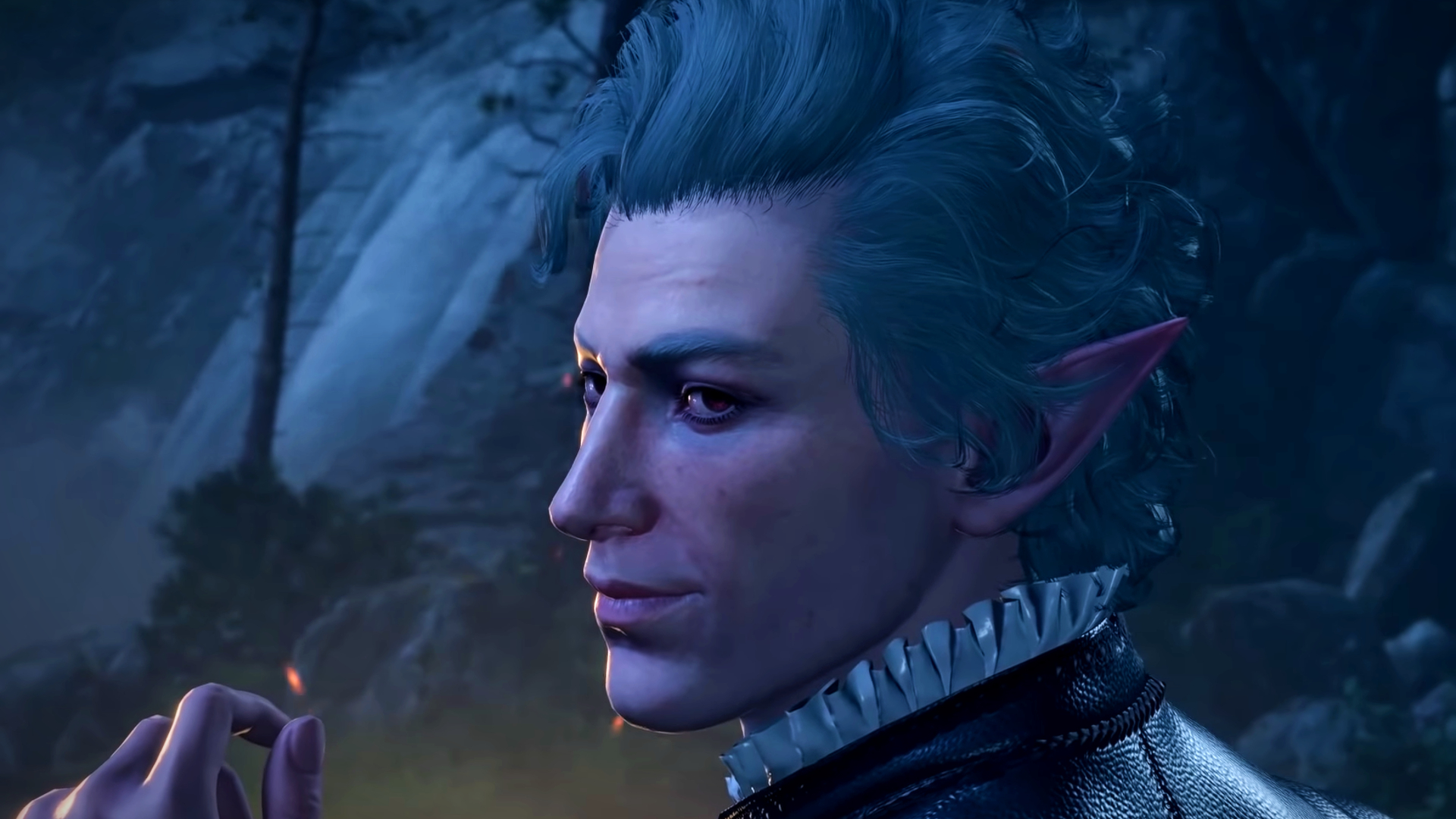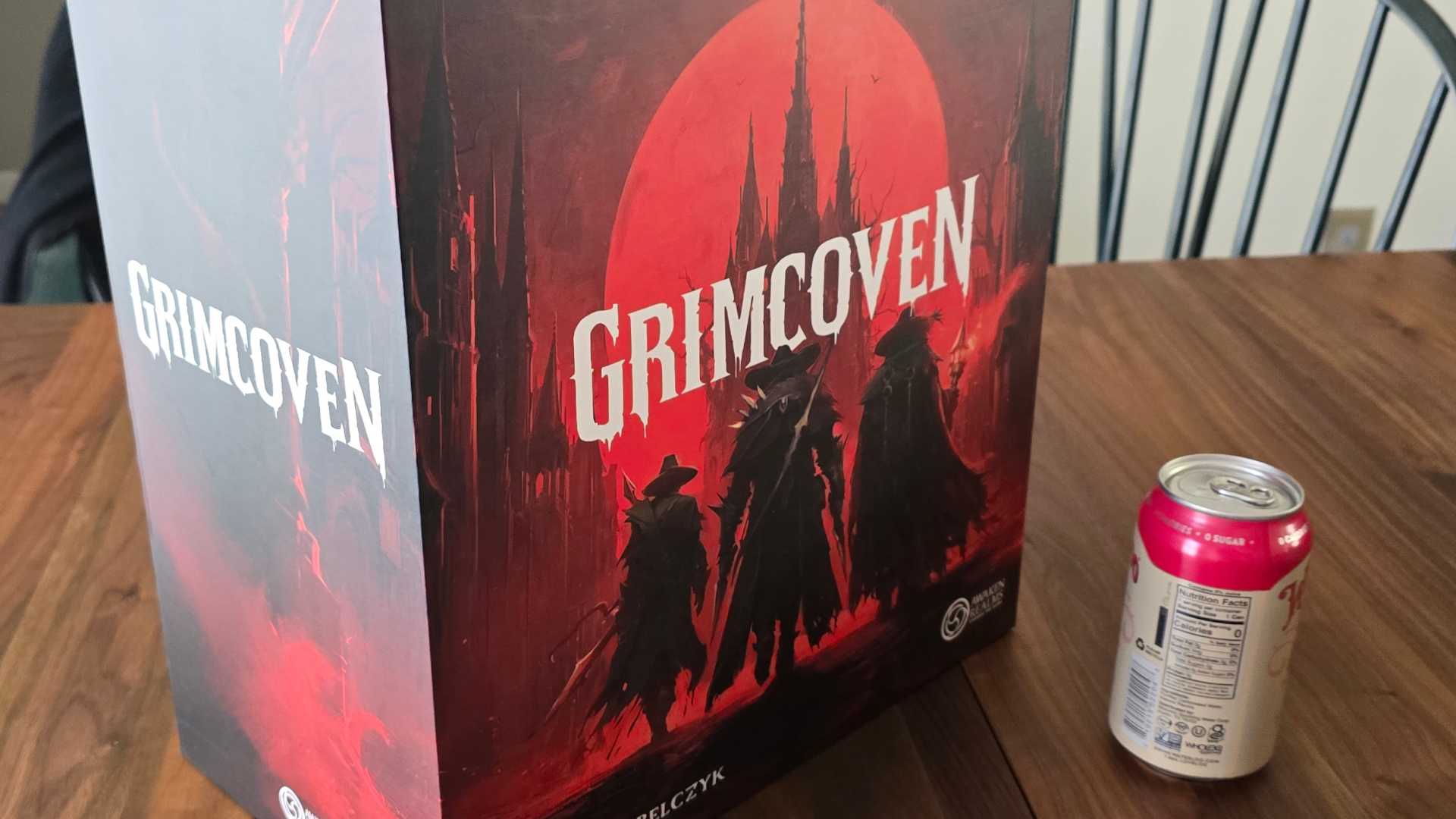Baldur's Gate 3 publishing lead says it's not "true that big budget = s**t" and it's "easier than ever" to "find an audience" for games, but "the public company model is broken in entertainment"
A "genuine lack of vision" is also a problem, Michael Douse says

Weekly digests, tales from the communities you love, and more
You are now subscribed
Your newsletter sign-up was successful
Want to add more newsletters?

Every Friday
GamesRadar+
Your weekly update on everything you could ever want to know about the games you already love, games we know you're going to love in the near future, and tales from the communities that surround them.

Every Thursday
GTA 6 O'clock
Our special GTA 6 newsletter, with breaking news, insider info, and rumor analysis from the award-winning GTA 6 O'clock experts.

Every Friday
Knowledge
From the creators of Edge: A weekly videogame industry newsletter with analysis from expert writers, guidance from professionals, and insight into what's on the horizon.

Every Thursday
The Setup
Hardware nerds unite, sign up to our free tech newsletter for a weekly digest of the hottest new tech, the latest gadgets on the test bench, and much more.

Every Wednesday
Switch 2 Spotlight
Sign up to our new Switch 2 newsletter, where we bring you the latest talking points on Nintendo's new console each week, bring you up to date on the news, and recommend what games to play.

Every Saturday
The Watchlist
Subscribe for a weekly digest of the movie and TV news that matters, direct to your inbox. From first-look trailers, interviews, reviews and explainers, we've got you covered.

Once a month
SFX
Get sneak previews, exclusive competitions and details of special events each month!
Baldur's Gate 3 publishing director Michael Douse says it's not necessarily true that enormous game budgets are a terrible thing, but the "public company model is broken" in the entertainment industry, anyway.
This comes via a thread on Twitter, where Apogee Software co-founder and Duke Nukem co-creator George Broussard responds to a recent quote from Rockstar co-founder Dan Houser, who expressed he thinks gaming could "either go somewhere really interesting or somewhere that gets overly focused on making money."
Broussard says this is nothing new. "Once games (the 360 era) started costing $30 million to make, vs $3-5 million in the 2000ish era, then jumped to $100-250 million – it was all over for originality and risk taking," he argues. "Publishers can't afford to take a risk with that much money. This is why you've seen AAA go to bi-yearly sequels on the top 20-25 IP and why you see so few new games. Nobody can afford to take the risk anymore." He adds that although this has "been the case for 20 years," it's still "WORSE today with the mega-costs of a tentpole AAAA game."
Larian's publishing director isn't so sure, though. "I don't think it's actually true that big budget = shit," Douse responds. "It just takes literally everyone involved to be on the same mission, which in 9/10 times is not the case."
I don't think it's actually true that big budget = shit. It just takes literally everyone involved to be on the same mission, which in 9/10 times is not the case. You can find an audience (even a necessarily large one) easier than ever now, but it's people in the trad "product…November 24, 2025
These days, Douse argues, it's "easier than ever" to "find an audience (even a necessarily large one)." However, "it's people in the trad 'product pipeline' that are the problem. They either dont understand that or see it as a risk to their business model, or they're unable to parse that by investors."
He continues: "The public company model is broken in entertainment at a time where it should be easier than ever to connect audiences to creators. Half of it is dim witted self preservation and the other half is genuine lack of vision & leadership (or institutional stupidity)."
Publicly traded companies – like Nintendo, Microsoft, and Rockstar Games owner Take-Two Interactive – can face a lot of pressure to appease shareholders and make sure their financials look strong. After EA announced that it's set to go private following a buyout by investment firms Affinity Partners and Silver Lake, and Saudi Arabia's Public Investment Fund (PIF), BioWare veteran Mark Darrah suggested that in the long term, "it's probably good for whatever EA still exists after all the dust settles, because by being a private company, they are able to approach their financials in the way that best suits the way the business is being run."
Weekly digests, tales from the communities you love, and more
Things are tough out there for all sorts of gaming companies, though – the mass layoffs and studio closures we've seen over the last few years are indicative of that. Hopefully the issues Douse points out won't be such a problem forever.

I'm GamesRadar+'s Deputy News Editor, working alongside the rest of the news team to deliver cool gaming stories that we love. After spending more hours than I can count filling The University of Sheffield's student newspaper with Pokemon and indie game content, and picking up a degree in Journalism Studies, I started my career at GAMINGbible where I worked as a journalist for over a year and a half. I then became TechRadar Gaming's news writer, where I sourced stories and wrote about all sorts of intriguing topics. In my spare time, you're sure to find me on my Nintendo Switch or PS5 playing through story-driven RPGs like Xenoblade Chronicles and Persona 5 Royal, nuzlocking old Pokemon games, or going for a Victory Royale in Fortnite.
You must confirm your public display name before commenting
Please logout and then login again, you will then be prompted to enter your display name.


